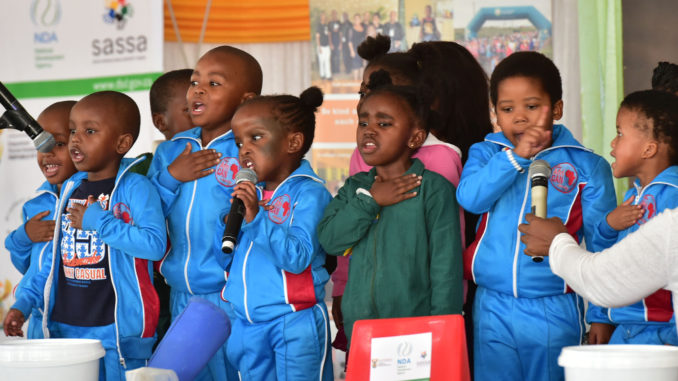
The number of rapes and murders in South Africa has soared to historic levels, with an estimated 110 children raped and 49 killed every 24 hours, according to new statistics.
These disturbing revelations emerged during the murder trial of a seven-year-old child who was raped and murdered in Waterloo. Captain Bonginkosi Zulu, while testifying in court, said that the statistics in the country reveal that children are becoming an easy targets for criminals.

BYPASS THE CENSORS
Sign up to get unfiltered news delivered straight to your inbox.
You can unsubscribe any time. By subscribing you agree to our Terms of Use
Latest Video
News24.com reports: South African Community Crime Watch founder Steven King said rape, abuse and murder has become an unfortunate reality in the country. “The level of incidents as quoted by SA Statistics is shocking to say the least and it must surely put pressure on government to institute more serious punishments,” said King.
He said that they cannot be silent on this issue as it affects old, young, black, white men and women, “There has to be a serious change in law which will render life sentences to those cases where rape was proven beyond doubt.”
Further he said that date rape is still a huge problem amongst teens, who see it as challenge, and that must be stopped by the full might of the law.
In conclusion he said if the culprit can’t do time in jail then they mustn’t commit crime: “You will be caught and you will be punished.”
“Ladies, listen to your intuition when alone. Although you can never fully protect yourself from potential sexual assault, it’s important that you avoid dangerous situations. Reduce risk in social situations,” said King.
WAYS TO SAFEGUARD AGAINST CHILD ABUSE
• Always look for group situations to involve your child in rather than placing your child alone with one adult.
• Strongly encourage policies limiting one-adult, one-child situations in all youth-related activities such as in faith groups, sports teams and school clubs. Make sure parents/caregivers can observe or interrupt activities at any time. Also make sure that background checks have been done on all volunteers and others working directly with children.
• Drop in unexpectedly when your child is alone with any adult.
• Monitor your child’s Internet use. The Internet has become the playground for paedophiles to interact with children. Their goal is to lure them into physical contact after gaining their trust.
• Talk about it — children often keep abuse a secret, but barriers can be broken down by talking openly about it.
• Know how children communicate. Children who do disclose sexual abuse often tell a trusted adult other than a parent.
• Talk openly with your child. Teach your child that it is your job to protect him or her.
• Teach your child that it is not his or her responsibility to protect others.
• Demonstrate daily that you will not be angry, no matter what your child tells you about any aspect of his or her life.
• Listen quietly. Children have a hard time telling parents about troubling events.
• Teach your child about their body, about what abuse is and, as age-appropriate, about sex. Teach words that will help them discuss sex comfortably with you.
• Teach your child that it is against the “rules” for adults to act in a sexual way with children and use examples.
• Start early and talk often. Use everyday opportunities to talk about sexual abuse.
• Learn the signs. Physical signs of sexual abuse are not common, although redness, rashes or swelling in the genital area, urinary tract infections or other such symptoms should be investigated carefully. Also, physical problems associated with anxiety, such as chronic stomach pain or headaches, may occur.
• Emotional or behavioural signals are more common. These can run from “too perfect” behaviour to withdrawal and depression and unexplained anger and rebellion.
• Notice a child’s fear of going home.
• Notice if a child is expressing inappropriate knowledge of sexual relations. If a child is a victim of sexual abuse, he or she may exhibit overly sexual behaviour or use explicit sexual language.
• Notice if there is an unexplained drop in a child’s attendance at school. Children may be unable to attend school due to injuries from their abuse or are intentionally kept out of school to cover up visible signs of abuse.
• Notice if a child is stealing or begging for food from fellow classmates or members of the community. Children who do not get enough to eat may try to obtain food in whatever way they can.
• Notice a child’s lack of personal care or hygiene. Young children who have been neglected or abused may appear dirty or uncared for, or have unsuitable clothing for the weather conditions.
• Notice if there is a decline in a child’s performance in school. Abuse may affect all aspects of a child’s life, including their grades.


